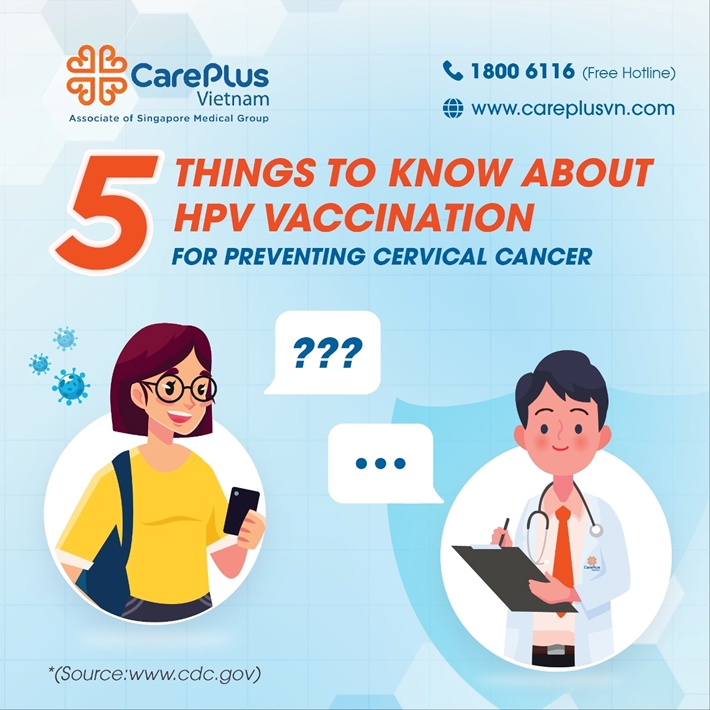5 Things to Know About HPV Vaccination for Preventing Cervical Cancer
The HPV vaccine can prevent more than 90% of HPV-related cancer cases. HPV spreads through skin-to-skin contact or sexual activity. Prevention is better than cure - actively preventing HPV early on is an effective, safe, and easy solution to reduce the risk of contracting the disease. This invisible shield of prevention will not only protect yourself but also your family and the surrounding community.

4/10/2024 10:07:41 AM
1. Why you should get vaccinated against HPV?
The HPV vaccine (preventing diseases caused by human papillomavirus) can prevent infection from certain types of HPV viruses. HPV infection can cause various types of cancer, including:
-
Cervical, vaginal, and vulvar cancers in females
-
Penile cancer in males, anal cancer in both males and females
-
Throat cancer, tonsil, and base of the tongue cancers (oropharyngeal cancer) in both males and females
HPV infection can also cause genital warts.
The HPV vaccine can prevent more than 90% of HPV-related cancers. HPV spreads through skin-to-skin contact or sexual activity.
HPV infection is so common that nearly everyone will get at least one type of HPV at some point in their lives. Most HPV infections will clear up within 2 years. But sometimes HPV infections last longer and can lead to cancer later in life.
2. How many types of HPV vaccines are there?
The Food and Drug Administration (FDA) has approved 3 types of vaccines that can protect against HPV. However, in Vietnam, only 2 types of HPV preventive vaccines are currently being used:
-
Cervarix (Belgium): Prevents HPV types 16 and 18, which are types of viruses that can cause cervical cancer.
-
Gardasil (USA): Prevents HPV types 6, 11, 16, and 18. Apart from preventing cervical cancer, vaginal cancer, and anal cancer, this vaccine also helps to protect against HPV 6 and 11, types of viruses that cause genital warts.
3. When should you get vaccinated against HPV?
The Centers for Disease Control and Prevention (CDC) has recommendations for HPV vaccination for all children (both boys and girls) to receive the HPV vaccine around 11-12 years old, and it can be given as early as 9 years old. Vaccination is encouraged for everyone up to 26 years old.
HPV vaccination can also be given to adults aged 27 to 45, based on discussions between the patient and the healthcare provider.
4. Who should not get the HPV vaccine?
If you have any serious allergies, inform your doctor before getting vaccinated, including:
-
Having had a severe allergic reaction after a previous HPV vaccination, or having a severe allergic reaction that threatened life
-
Pregnant women should not get the HPV vaccine during pregnancy.
-
If you have a mild illness, such as a cold, you can still get vaccinated against HPV. If you are moderately or severely ill, you should wait until you recover.
5. Reactions after HPV vaccination
Like any medication, including vaccines, there may be side effects. But they are usually mild and temporary. Most people who receive the HPV vaccine have no serious issues. However, some people may experience mild issues such as fever, headache, redness or swelling at the injection site...
Overall, HPV vaccination is the most effective measure to prevent cervical cancer caused by HPV. However, it's important to remember that this vaccine cannot prevent all HPV-related cancers, nor does it protect against sexually transmitted diseases. Therefore, maintain a healthy and safe lifestyle and undergo regular health check-ups to better protect your body.